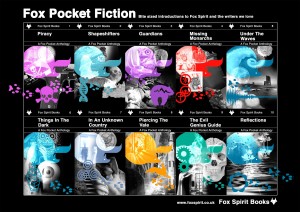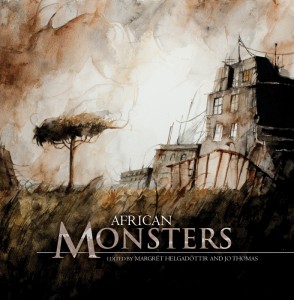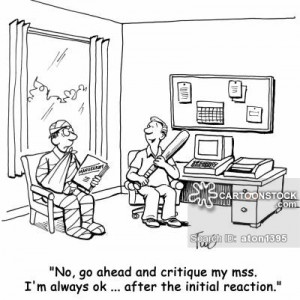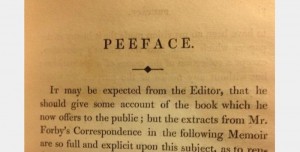I reached out to a whole bunch of my favourite editors with a few basic questions around short story collections and the editors perspective. For today’s session I am delighted to welcome Jonathan Oliver of Solaris/Abaddon, Mhairi Simpson and Margret Helgadottir who have edited for Fox Spirit and Farhana Shaikh who runs Dahlia publishing.
When you put a call out do you already know exactly what you are looking for?
Jonathan Oliver : I start with a theme, so generally I know what I’m looking for, but when I put together submissions guidelines, I always say to authors ‘here’s the brief, but play with it, stretch it to its limits.’ So, I want to give my writers as much room as possible to explore within the theme I’ve given them. After all, I don’t want to end up with an anthology of similar stories.
Mhairi Simpson : No. When I did my first call I had a very specific idea in mind. By the end of it I realised I knew nothing and was just happy to be astonished at the wide variety of tales even a relatively narrow prompt can produce.
Farhana Shaikh: I try not to be too clear about what I’m looking for because I don’t want a piece of writing to fail before I’ve had the chance to consider it properly. This is especially true for an anthology because the breadth of style tends to be so broad and different writers respond to themes in such different ways.
What I’ve realised though is that a short story is successful as long as it does what the writer set out to do. In the simplest of terms, I could try and break down what that success often looks like. For example it might mean strong characterisation and a refreshing voice, but I find those terms can be reductive because it might also just be a beautiful story told in the simplest of ways.
Margrét Helgadottir : I have only put out an open call one time, for the Winter Tales anthology. I knew then what kind of stories I wanted – a strong voice, an interesting plot, atmosphere, and also a more unspoken chill of the dark and cold winter season – but other than this I tried to be very open both in the call and when I read the submissions. As for the monster books (working on volume four now), they are invitations only. I am hunting for monster stories. They can be written in all genres but they have to have something monstrous about them and they have to be dark. I am very clear in the invitation what I am not looking for (satire, erotica etc).
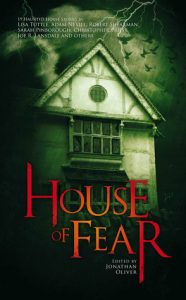
What things will make you discount a story quickly?
Jon : Badly presented and with obvious errors. The other thing is if the story has completely ignored the brief. So, if I say this anthology has to be about a haunted house, and I get a submission that’s about a mutant spider or something, with no haunted house in sight, then that will be pretty quickly rejected. Fortunately it’s not something I have to worry about a lot as all of my anthologies are invite only.
Mhairi : Condescension on the part of the author. A pushy author asking if I’ve made a decision yet when the submission period is still open. Any mention of sexual assault which doesn’t feel right in the story.
Farhana : My pet hate is writing that is cluttered with adjectives or flowery language. I tend to steer away from writing that is trying too hard or clever, or where the writer clearly hasn’t worked out what the heart of the story really is. Having said that, I do like to re-read writing (this is especially true for short stories) because I don’t like to make too rash a decision about whether something works or not. Editing is after all, hugely subjective and sometimes I have to challenge myself to work with writing that is not necessarily to my taste.
Margrét: Except for not following the guidelines and the idea of the book, I will quickly put a “no” on any story that uses racism, rape, violence, discrimination of gender or sexual orientation, when it is clear that it doesn’t do anything for the plot. I don’t discount a story because of bad grammar or language if I see a potential—a core in the story that will shine if the story is polished in the edits. I have had 2-3 stories in all the volumes I have edited that required more work from me and the author than the other stories but I am very satisfied that they are part of the books today.
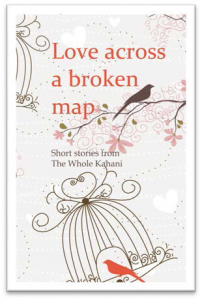
Would you consider taking a story that doesn’t quite fit the idea behind the call and whatever your answer, why?
Jon: I like to be pleasantly surprised by submissions. So, for example, we all have an idea about what constitutes a haunted house and a haunting, but I also like to see new takes on such traditional subject matter, new twists on the formula. Sure, I’m a sucker for a traditional ghost story, but more so I love the possibilities that new fiction explores.
Mhairi: Yes. I’ve initially said no to a story which didn’t seem to quite fit the call. I had something else in mind. Then as more stories came in I realised I had an opportunity to show ideas which weren’t in line with my own thinking, because none of the stories quite fit the call, certainly not what I’d been expecting to get. It was a learning experience – I learned not to make assumptions about what did and did not fit. It broadened my mind and was a tad humbling, too.
Farhana: I’d be reluctant to accept anything that was too far from the initial concept, purely because I think collections have an odd way of working in that the stories once ordered have their own life and rhythm. I’d be reluctant to upset the balance of that. But as I’ve said, the scope for an anthology tends to be quite wide, so it’s rare that such a thing happens. Where this has been the case, I’ve simply asked the original contributor to submit something else.
Margret: No and yes. If it’s far out from the book idea, no. If the book is about Europe I will not include a story that takes place on the Moon. However I can include a story if it plays with the boundaries of the sub call but still has one foot inside the frame. I have done this a few times but only when the stories were so excellent in both language and plot that I just couldn’t say no. Often they can be shaped a little bit in the edits so they fit the book better.
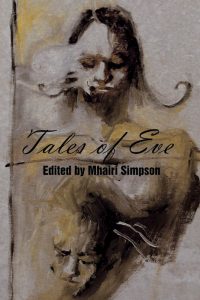
How do you approach running order?
Jon: You want to start with a belter right out of the gate. You want something substantial in the middle and you want to end on a story that packs some sort of punch. In between you can get the reader settled and explore all the wonderful variations on the ideas your authors have sent you.
Mhairi: I try to find a thread or arc which links all the stories together and then decide where each story falls along that arc. For Tales of Eve it was a genre thread, varying from hard sci-fi to high fantasy so I started with the hardest sci-fi and ended with the highest fantasy. It was actually really difficult!
Farahna: By the time I get to a running order, I’ve probably read the work separately a good few times and something will be emerging about how I’d like to start and where I’d like to begin. Of course, a reader may choose to go in whatever order they wish, but sometimes as an editor I think such things are important.
Margrét: I try to put the strongest stories up front and in the back. You need to catch the readers right away. A short excellent story as number one is a very good tactic. It sets the tone of the rest of the book quickly. The last two stories should be the after thought of the book, something to make the book live a little bit longer in the readers’ minds, make them reflect a little bit about the book theme. Other than this I am concerned about putting the stories in anthologies in a natural flow, vary it a little for the reader. This goes for both the length of the stories, style and theme. I don’t put two vampire stories next to each other of the other ten stories are about were wolves for instance.
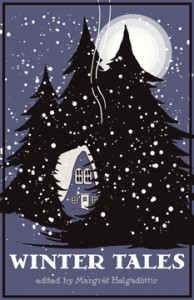
What are some of the things you think people underestimate in regards to the time/effort involved in the anthology editors role?
Jon: Coming up with the theme always takes the most time. You want something iconic enough that people will pick the book of the shelf, and bring some sort of expectation, but you also want something different enough that you stand out. In an invite only situation you know to some extent the strengths of your authors, so editing the stories is the easiest and most pleasurable part of the whole affair.
Mhairi: It’s not the typos – if a story’s got that many mistakes I’d send it back and tell them to run it through spellcheck or a beta reader. When it comes to figuring out what a story is trying to say and if it can be said better, however, that can take a while. It’s usually a clarity issue – I’m not sure what’s going on and the author makes some changes and through the various changes we get closer to the diamond at the heart of the tale.
Farhana: I don’t know if anyone does underestimate what an editor brings to a collection but of course, they bring a whole deal of experience and expertise. It’s the editor’s role to not only select the stories and collate these in some order, but often it can mean a lengthy battle with contributors to undertake revisions, and ensure these come back on time, as well as project manage the entire thing. It’s fine, if you have around ten contributors or so, but once you start veering in to the twenties and beyond it can become challenging. An editor may also be involved in promoting the book, and keeping all the contributors in the know, so it’s a huge effort with lots of emailing back and forth. If the editor is also the publisher, as in my case, then there’s lots more going on behind the scenes away from the anthology with regards to choosing the title, managing the jacket cover designs, and working with suppliers to ensure the project can be delivered on time and on a shoe-string budget.
Margrét: I think many don´t realize what the editor job is. If you are editor for books from small presses you must involve yourself in the book production and getting the book out there. In addition to the editing of the language and grammar, editing of the story flow and angles, proofreading and all that, I would say that at least 30 percent of my tasks in a book production is preparing the book production (researching the book, invitations to contributors etc) and all the work when the book is published with marketing, trying to get reviews and spreading the word amongst the thousands of other titles. I spend a lot of time researching what magazines and venues which might be interested in looking at the book. The monster books are a challenge since I try to reach book bloggers and media also in the continents we cover: Africa, Asia etc. It is hard work but it is so satisfying when you see results.
